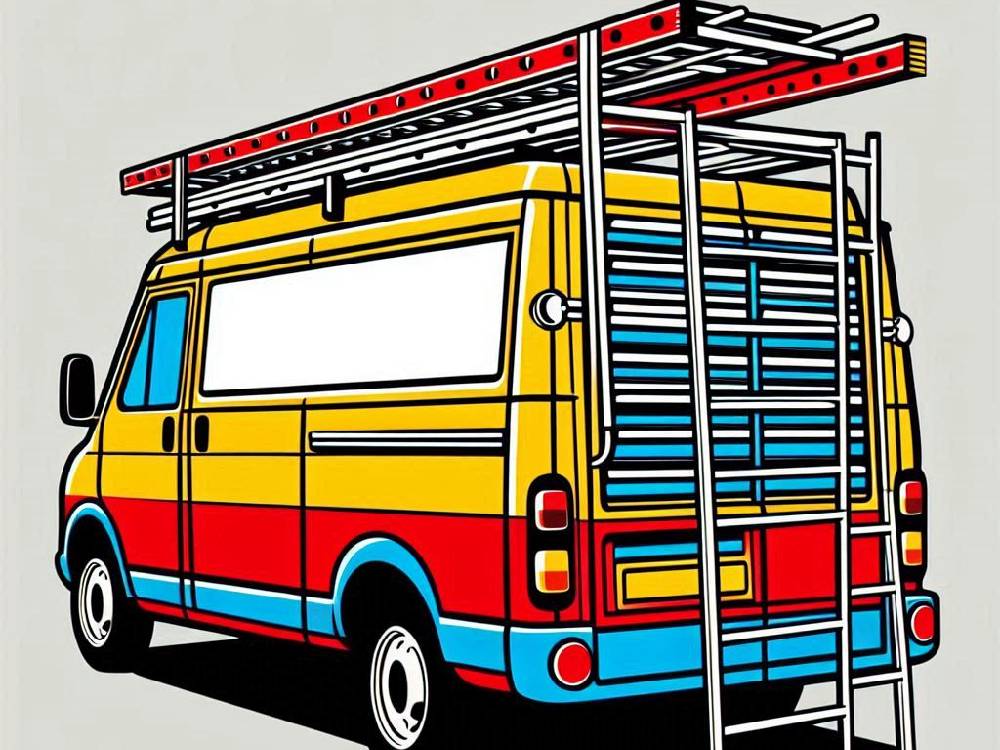Introduction
Van insurance is essential.
But did you know that standard policies might not always cover all your needs?
In fact, there are certain situations where you might require specialist van insurance.
Why?
Because standard insurance isn’t always tailored to cover every unique scenario.
Whether you’re a young driver, have previous convictions, or use your van for unusual work purposes, specialist insurance could be exactly what you need.
It can also help you find a cheaper cover that fits your specific situation.
In this guide, we’ll dive into different scenarios where specialist van insurance is necessary, and how it could save you money.
Van Insurance For Young Drivers
If you’re a young driver, you’ve probably noticed one thing:
Finding affordable insurance can be tough.
But why is that the case?
Insurers often see younger drivers as a higher risk due to their inexperience.
This means that many standard van insurance policies have age restrictions.
Some policies may only cover drivers over 21, while others hike up premiums for those under this age.
But don’t worry!
A specialist van insurance policy could be the perfect solution for young drivers.
How?
These policies are often tailored for young people who have some driving experience with other vehicles, such as cars or motorbikes.
Even better, if you’ve been a named driver on someone else’s policy, you might be eligible for even lower premiums.
So, why stick with expensive standard policies?
Young drivers should explore specialist insurers to get a better deal.
You might be surprised at how much you could save.
To learn more about getting cheaper van insurance as a new driver, check out Can I Get Van Insurance As A New Driver?.
Previous Convictions
Do you have a criminal conviction or a series of driving offences?
If so, you probably know that finding affordable van insurance can be an uphill battle.
But should your past define your future driving costs?
Not always.
Standard insurers tend to increase premiums for those with convictions—especially motoring offences like speeding or dangerous driving.
However, there’s a better option:
Specialist van insurance providers often take a more personalised approach.
These insurers will look beyond your past and focus on your current driving abilities.
They might offer a much more affordable policy, based on your specific circumstances.
Some even take into account whether you’ve taken proactive steps, like enrolling in a driving safety course, to reduce your risks.
In many cases, this personalised approach results in cheaper van insurance.
If you’ve struggled with finding affordable insurance because of past convictions, a specialist insurer could be your best bet.
Van Insurance For Unusual Work Use
Do you use your van for work?
If so, you’ll likely need commercial van insurance.
But here’s the catch:
Even if you only use your van occasionally for work, standard policies might require you to have commercial cover.
That can be annoying, especially if you mostly use your van for personal purposes.
But there’s good news.
Specialist van insurance offers far more flexibility than standard policies.
If you use your van for haulage, courier services, or even just for carriage of your own goods, a specialist insurer can tailor the policy to your exact needs.
This way, you’ll only be paying for what you need.
No more, no less.
For more insights on different van uses, check out Why Proper Vehicle Compliance Is Crucial for Road Safety.
Short-Term Cover
Sometimes, you don’t need van insurance for a full year.
Maybe you only need cover for a few weeks.
Or even just a few days.
If that’s the case, short-term van insurance could be your best option.
How does it work?
Short-term van insurance operates similarly to annual policies but only covers you for the exact period you need.
This could be anything from a single day to a few months.
Specialist insurers often offer flexible, short-term policies that can save you from paying for cover you don’t need.
Just be sure to check the details of what’s included before purchasing any policy.
If you only require insurance for short periods, standard insurers might not provide the flexibility you’re looking for.
But a specialist provider could.
For more details on short-term van insurance, visit What is the Cheapest Van Insurance Group?.
Van Insurance For Imported Vans
Do you own a van that was imported from outside the EU?
If so, finding the right insurance can be tricky.
Here’s why:
Most standard insurers offer cover for European imports, but when it comes to grey imports from countries like the US or Japan, the options are limited.
And expensive.
That’s where specialist van insurance comes in.
Specialist providers are experienced in offering tailored cover for foreign vans and trucks, often at a much more reasonable cost.
They understand the unique needs of imported vehicle owners and can provide the right level of coverage that standard insurers may not offer.
If you own a grey import or a van from outside the EU, don’t settle for overpriced standard policies.
A specialist insurer will likely offer a better deal.
For more information on getting the right insurance for imported vans, check out Are You Driving a Car or a Van? Check Your Insurance Policy.
Conclusion
In conclusion, specialist van insurance can be a valuable option in many situations where standard policies fall short.
Whether you’re a young driver, have previous convictions, use your van for unusual work purposes, need short-term cover, or own an imported van, specialist insurance could save you both time and money.
So, why limit yourself to standard policies that don’t meet your needs?
Explore your options with a specialist van insurance provider to ensure you get the best possible deal.
For more tips on how to save money on your van insurance, check out our blog How Telematics Devices Can Save You Money on Van Insurance.






